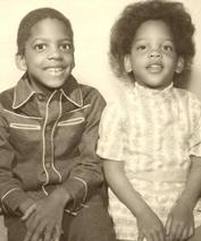 Do you have a dream deep in your heart that you want to pursue? Have you taken the necessary steps to achieve it? There may be a lot of mental obstacles making it difficult for you to move forward but, success begets success. Trust in the process, and imagine how happy and fulfilled you will feel when you make your dream a reality. Here are some tips to help you solve the mental obstacles: 1. Don’t wait for the PREFECT situation… because the situation will never be perfect. 2. Don’t wait until other people agree with you… because if you wait for a consensus, you will never start. 3. Don’t wait until your skill is good… because you’ll learn to hone your skill-set much faster by working than by waiting. That means every day, you MUST decide what you’re going to do to make that dream a reality. Then do that task first thing in the day, before even checking email. If you can’t do it first thing, schedule time for it. If it’s a priority, you’ll make the time.  But what about work and family? Obviously those are also priorities, so you’ll have to schedule time for all three. That might mean cutting back watching TV, or doing less Internet surfing or reading, or spending less time texting. Place limits on these routine-type activities, so that you can find the time to work on your dreams. You can make the time, if you make it a priority. No matter how hard you try, you cannot figure out your passion by thinking about it. You need to take action and feel your way to your truth, from the inside out. Below is a powerful impromptu speech from actress and singer Jenifer Lewis. I hope you enjoy it and let her wisdom motivate you to pursue your dreams.
0 Comments
 My Grandfather taught me something rather profound about marriage. He asked me one day what makes a great marriage because he was curious about what my mother was teaching me about men. I said it was a partnership where it takes two people pulling their weight to make it work. He told me that was the wrong mindset. “It’s not a 50/50 thing,” he said. “It more like 100/0. Even if your other half doesn’t do it, you do it. Because you and your husband are ONE.“ Today that advice gets me thinking back to when I was single and living by myself. If there were dirty dishes in the sink…I’d do it. If there was laundry to do…I’d do it. Logging expenses? I’d do it. Anything that needed to get done, I did it because there was only one. I did all the cooking AND all the cleaning.  It takes a lot of personal growth to realize that keeping score is a form of pride. And pride is a killer to any healthy relationship. Pride is the root of all grudges, resentment, bitterness, jealousy and condemnation. Pride blinds us so we can no longer see the good in the person we love. You’ll find yourself saying, “You never make the bed!” and the other will say, “You never clean the bathroom!” I have no desire to be an adversary with my mate and I refuse to be focused on pride. It’s not healthy and it NEVER solves anything. Instead of focusing on pride, imagine if BOTH husband and wife saw marriage as a partnership where both parties put in their 100/0. No matter what needed to be done, things would get taken care by whomever encountered it. A relationship like that would grow and flourish and the energy would be more positive than negative.  People who keep score often begin this behavior as a way to teach the other partner a lesson. Hurt within the relationship is never just hurt; it turns into wanting to hurt someone else so he/she will suffer and know what it feels like. The problem with that is that we are all sensitive to different things, and what hurts one person looks childish or punitive to another. Most of the people who do this were raised by parents who kept score. It is an immature coping mechanism of dealing with anger, but, like the silent treatment, it ends up destroying both partners’ feelings of connection and trust. If you want to erase your desire to keep score, start working as a team. Be kind to each other, prioritize the household tasks, follow through, and remember that changing a bad habit takes at least thirty days. And if you must keep score, keep score of the loving things your partner does each day. This will enable you to see more of them.  As a young child, I’ve had my hair pressed straight and braided by my mother to make my hair more manageable. There wasn’t a week when I wasn’t inundated with the thought that my hair was difficult to tame. I had first permanent relaxer at age thirteen so I could manage my hair myself when I entered high school. And my teenage peers often reinforced that having a straighter hair texture other than my own was highly preferred. Let’s fast forward to adulthood and my feeling about my hair today. For the past couple years I’ve been more conscious about the food I eat, natural products, and getting away from harmful chemicals in beauty items so I also developed a desire for healthier hair care options.  I’ve been telaxing my hair for five years. (NOTE: Instead of chemically processing my hair bone straight, I purposely under-process my hair to leave some texture which is called 'texlaxing'. The result was slightly textured roots. Texlaxing is done with a mild permanent relaxer: the hair is coated with oil/conditioner first and the chemicals stay on any new growth for less than seven minutes.) I only telex my hair three or four times a year. You can see my blown out and flat ironed hair is healthy and shoulder-length and I totally love it. But during my travels this year to different United States climates and I found myself struggling with my hair. The coldness of Milwaukee, WI, the dryness of Los Angeles, CA, and humidity of Atlanta, GA made me take a hard look at my hair. I was working so hard to make it conform to being straight that I never realized my hair hadn’t grown past my shoulders in years. And even worse, I haven’t seen my natural hair texture since I was a teenager.  Was I afraid of seeing my real hair? Did working in a corporate environment make me fearful to embrace what Mother Nature gave me? Did I secretly think my facial features would look harder without the look of longer hair to frame it? Yes, yes, and yes. I had those fears but I’m a mother of two college-aged daughters so how could I tell them to embrace and love their natural beauty if I couldn’t do the same? So I stopped the damaging hair processes the moment I returned from Atlanta. I researched everything I could about my natural hair texture and started my hair journey. Only one person in my life (a black man) totally hates my naturally coiffed hair. That’s disappointing but I understand that everyone won’t like the way my hair natural grows out of my scalp. What matters is what I feel about my hair. And I’m lucky that my family, friends, colleagues, and readers have been so supportive. It feels healthier and is so beautifully versatile that with each passing day, I appreciate texture God has given me.  What I’ve learned from the start of this journey is that the weather shouldn’t have power over my personal style. My hair has a wonderful soft texture that I love touching and styling. It can be shown in this fashion just as much as I rocked the straight looks. Today, I feel totally comfortable in my being and the best part is my daughters understand their hair is beautiful in its natural state too. So what about you? Are you changing a part of yourself due to a fear of being judged? Have you placed your health on the back burner in order to conform to a societal norm? Does someone’s opinion have more weight in your life than your own? Can you love what you keep trying to change?  We are asking each of the author and Book Club nominees to submit a ‘thank you statement’ that will be accessible from ‘The Angie Awards page’ so their readers can be acknowledged for their support. The author nominees can also explain how their story came to life and why they worked so hard to see it in print. The Book Clubs can explain the mission of their book clubs and how they hope to make an impact on the multicultural romance genres. There is no length requirement. The recipients of the Visionary Award and the Academy of AA/IR/Multicultural Fellows should submit their biographies listed along with anything thing they wish to say about the African-American, Interracial, and Multicultural romance genres. This information will make readers and bloggers aware of their contributions to the literary community. You can send your information as a Word Document (.doc or .docx files) to amb.novels@yahoo.com. In December, the ‘thank you’ statements and biographies will be printed in our online awards program (PDF) so readers can have a keepsake of the Angie Awards. NOTE: You can submit up to three photos for inclusion in jpeg or gif format., 250dpi READERS and SUPPORTERS You can submit graphics and text for a program ad to show your support for a nominated author, book club, or all of the nominees of the 2014 Angie Awards. Make your ad purchase below and submit your ad before November 23, 2013, 12PM EST.  As an author, I’m known to observe people’s mannerisms, speak patterns, and social interactions. It helps me to write well-rounded characters and give me a heightened sense of empathy for others. I've learned you can't view the world in only Black and White. A few years ago only types of people that seem to perplex me, when I dare to interact with them long enough, were the narcissists, the psychopaths, and the sociopaths . I’m sorry to say, I can no longer say that. God, in his infinite wisdom has granted me some insight into these personalities that I’ll never forget. I look at the world of personalities in a VERY broad spectrum. Here's what I've learned about the group of people that once confused me. A big marker to spot a narcissist is their lack of empathy. Lacking empathy is a profound disturbance to the narcissist's thinking (cognition) and feeling (affectivity). They can pay attention only to stuff that has them in it. This is not merely a bad habit -- it's a cognitive deficiency. They also won't take other people's feelings into consideration and so they overlook the fact that other people will react with feeling when abused or exploited and that most people get really pissed off by being lied to or lied about.  Sociopaths and psychopaths share many traits, which is the main source of confusion for differentiating them in psychology and criminology. The shared traits are: a disregard for laws and social mores, a disregard for the rights of others, a failure to feel remorse or guilt, a tendency to display violent behavior and outbursts. Sociopaths and Psychopaths are often witty and articulate. They can be amusing and entertaining conversationalists, ready with a quick and clever comeback, and can tell unlikely but convincing stories that cast themselves in a good light. They prey ruthlessly on others using charm, deceit, violence or other methods that allow them to get with they want. They lack of a conscience or sense of guilt, have no empathy for others, are self-absorbed, pathological liars that constantly violate social norms, they disregard the law, have shallow emotions, and have a history of victimizing others. Some are so good at manipulation and mimicry that they have families and other long-term relationships without those around them ever suspecting their true nature. Psychopaths have a physiological defect that results in the underdevelopment of the part of the brain responsible for impulse control and emotions. It is their ability to effectively mimic empathy and emotional connection that make them particularly dangerous, unassuming and often highly dangerous.  In the eyes of others, sociopaths don’t appear to have a conscience. Sociopaths are the product of childhood traumas and abuse. They are capable of empathy or emotional connection with others but only to specific individuals, such as a family member or friend, and only in specific contexts. As an author, I’m a student of personalities. I want to know the combination of thoughts, emotions and behaviors that makes everyone unique. The way people view, understand and relate to the outside world, as well as how they see themselves helps me understand character development better. A person’s personality forms during their childhood and is shaped through two major factors:
There may be a link between an early lack of empathy — understanding the perspectives and problems of others, including other children — and later onset of one of these personality disorders. That’s why it’s so important to learn the history of a person and not just get swept up in what they present to the world.  Some characteristics of a man 1. A man treats women with respect. If you don’t respect women, you’re not a man. PERIOD. 2. A man understands that his greater happiness exist in in helping others, not helping himself. 3. A man doesn’t stand still while the world passes him by, he continually pushes himself. 4. A man is a leader in at least one aspect of his life, whether it’s with his family, with his friends, or in business. But he also knows when to follow. 5. You can depend on a man. You can’t depend on a boy. 6. A man is proud, often to a fault. He doesn’t “change” but rather evolves. Ladies, don’t try and change a man, but let him evolve into the man he’s meant to be. 7. A man needs to be willing to do whatever it takes to keep his family safe and happy. 8. A man’s biggest mistake is giving another man an opportunity to make his woman smile. If you love her, you shouldn’t be giving any guy that chance. It should be you making her smile. 9. A man lives for a purpose beyond his own personal gains. This can come with time, and with family. It doesn’t always happen right away. 10. Don’t try to outdress a woman. She should be the center of attention and should not feel that she’s underdressed. 11. A man gets depressed, he gets sad, he thinks about quitting and folding, but he never does. He pushes through adversity. 12. A man has faults. It’s important to understand this. 13. A man can laugh at himself. 14. A man takes pride in how he looks and lives his life. He’s not ashamed by who he is, what he does or how he looks, even if he’s constantly trying to improve himself. 15. Men learn what is truly important over time. If they’re lucky, they’ll have a sense of it early on. 16. If a man finds someone special, he doesn’t treat her like she’s everyone else. 17. A man has fears, but he isn’t ruled by them. 18. A man learns from his mistakes. 19. A man does what is necessary, even if it’s the hardest decision, or the most unpopular one. 20. Don’t ask about the last guy she was with. Being competitive is a young man’s game. 21. Whatever you give a woman, she’s going to multiply. If you give her sperm, she’ll give you a baby. If you give her a house, she’ll give you a home. So, if your give her any crap, you will receive a ton of sh*t. 22. A man knows being a male is a matter of birth. Being a man is a matter of age. But, being a gentleman is a matter of choice. |
This blog covers novel completion, fellow authors and pop culture
Archives
May 2022
|

 RSS Feed
RSS Feed


